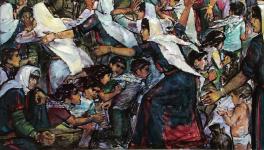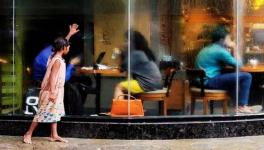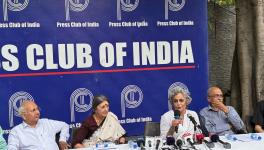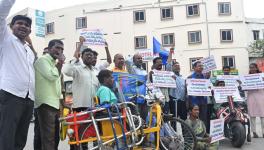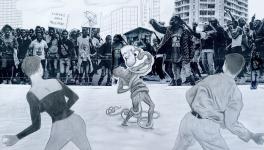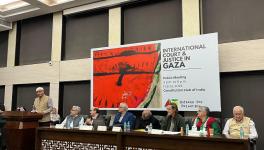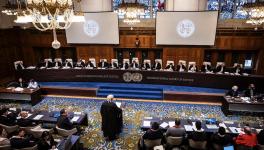“The UK Should Immediately Return the Chagos To Mauritius,” said the International Court of Justice
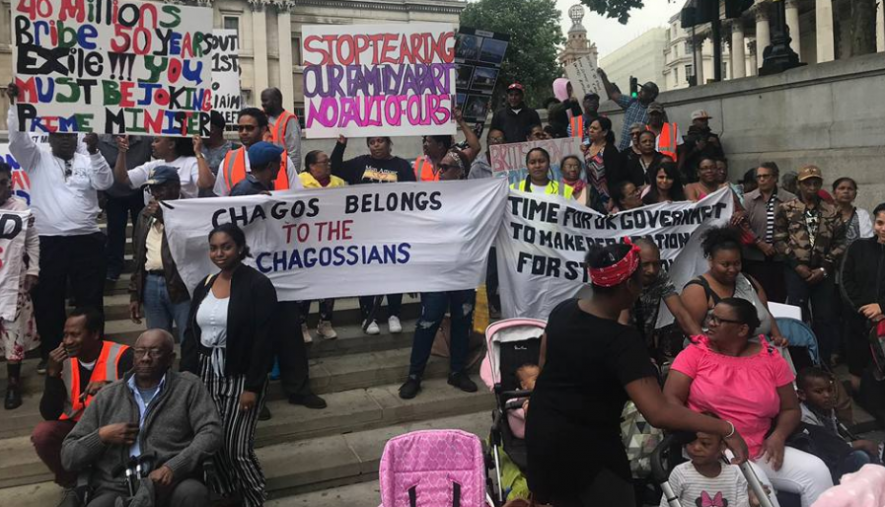
Photo: UK Chagos Support Association
On February 25, the international court of justice (ICJ), United Nation’s highest court, gave a ruling against the United Kingdom (UK), directing it to return the ownership of the Chagos Islands back to Mauritius. The ICJ unanimously decided that it has a jurisdiction to give advisory opinion, requested by the UN General Assembly, at the behest of Mauritius.
Despite UK’s argument that it had no jurisdiction, the court decided against this and delivered an advisory opinion with a majority of 13 to 1 votes from the 14 judge bench.
The court stated that in keeping with the international law, the decolonization of Mauritius was not lawfully completed when it acceded to independence in 1968, after the Chagos archipelago was separated from Mauritius in 1965. The ICJ claimed that the UK is obligated to end its administration of the Chagos “as rapidly as possible”. It also stressed that the member states are under an obligation to cooperate with the UN in the completion of the decolonization of Mauritius.
Mauritius initiated proceedings against the UK’s authority over the Chagos on December 20, 2010, after UK enforced a Marine Protected Area around it on November 1 that year. Mauritius had invoked the United Nations Convention on the Law of the Sea (UNCLOS) to challenge the legality of the ‘marine protected area’, claiming that Britain had no right to do so.
On March 18, 2015, the Permanent Court of Arbitration ruled that the Chagos Marine Protected Area was illegal. Later, Mauritius approached the United Nations in 2017, and an advisory opinion of the ICJ was requested by the resolution 71/292, adopted by the United Nations General Assembly (UNGA) on June 22, 2017. Mauritius was supported by 94 nations in the UN vote to consult the ICJ regarding the UK’s authority of the Chagos archipelago.
The ICJ’s advisory ruling deals a serious blow to the legitimacy of Britain’s territorial claim over the Chagos islands, which they call the British Indian Ocean Territory (BIOT). While Britain maintains that it had legitimately bought the islands from Mauritius, the latter has argued that they were coaxed into selling the islands when they were not in a position to assert their sovereignty. The British then leased out the Diego Garcia island in the Chagos for setting up a US Military base in 1971.
The African Union and the Non-Aligned Movement expressed unanimous support for Mauritius on the Chagos issue.
In their statement to Peoples Dispatch, UK Chagos Support Association said that “the ICJ verdict is certainly a win for Mauritius but it remains to be seen whether or not this is a win for the Chagossian people. It's true Mauritius has pledged to support Chagossian return, but much more is needed to deliver justice for the Chagossian people, who are still living with the consequences of their brutal deportation."
"Regardless of the constitutional future of the Islands, it is imperative for both the UK and Mauritius to treat Chagossians with the rights and respect that they deserve. That includes proper compensation and access to British citizenship."
"We hope that given the UN General Assembly has been advised to look at the process of allowing Chagossians to return, a consensus can quickly be reached that finally gives a measure of justice to Chagossians."
"Chagossians right to determine their own future must be respected," they said.
According to a report in The Guardian, the lawyers for Mauritius claimed that the separation was in breach of the UN resolution 1514, passed in 1960, which specifically banned the breakup of colonies before independence.
The Mauritius government welcomed the verdict and said that “it was a historic moment in efforts to bring colonialism to an end, and to promote human rights, self-determination and the international rule of law”.
According to estimates, around 1,500 to 2,000 Chagossians were deported from the Diego Garcia by the British to Mauritius when they leased the island to US. Since then, the Chagossians remain dispersed in several countries, including the United Kingdom, Mauritius and Seychelles, and are not allowed to return to the Chagos archipelago.
A section of the ICJ’s unofficial press release on the ‘Legal Consequences of the Separation of the Chagos Archipelago from Mauritius in 1965’ described the displacement by stating that “between 1967 and 1973, the inhabitants of the Chagos Archipelago who had left the islands were prevented from returning. The other inhabitants were forcibly removed and prevented from returning. On 16 April 1971, the BIOT commissioner enacted an Immigration Ordinance, which made it unlawful for any person to enter or remain in the Chagos Archipelago without a permit”.
The grievances of the Chagossian diaspora, who still remain in several camps in different countries, were reported by the mainstream press only on a few occasions. A documentary written and directed by John Pilger in 2004, called Stealing A Nation, brought the attention of the world to the pathetic living conditions and sufferings of the Chagossian diaspora through a series of interviews with Chagossians and legal experts.
In the book, Island of Shame: The Secret History of the US Military Base on Diego Garcia, author David Vine stated that, “while the Chagossians, being alienated from their native islands, remain deeply impoverished, the base on Diego Garcia has become one of the most secretive and powerful US military facilities in the world, helping to launch the invasions of Afghanistan and Iraq (twice), threatening Iran, China, Russia and nations from southern Africa to southeast Asia, host to a secret CIA detention center for high-profile terrorist suspects, and home to thousands of US military personnel and billions of dollars in deadly weaponry”.
The ICJ’s ruling has given fresh hope to hundreds of Chagossians who want to resettle in their native island, which now houses the Camp Justice of US, with an estimated population of 1,700 military personnel, mostly consisting of US forces, but also around 50 British troops and a further 1,500 civilian contractors.
Even though the ICJ’s ruling is not legally binding, it will be referred back to the UN General Assembly, where it will be debated and furthered accordingly. If the UN votes to return the Chagos to Mauritius, it would not only deliver justice to the native population but also contribute to global peace by outlawing the lease agreement between the UK and US, which facilitated the establishment of the military base on the island.
Get the latest reports & analysis with people's perspective on Protests, movements & deep analytical videos, discussions of the current affairs in your Telegram app. Subscribe to NewsClick's Telegram channel & get Real-Time updates on stories, as they get published on our website.









